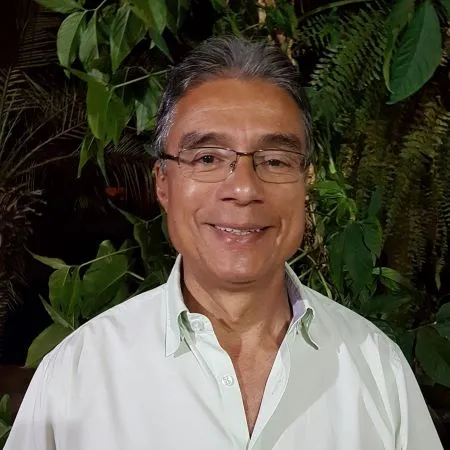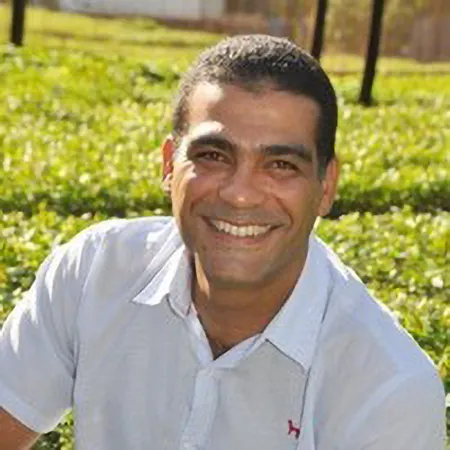Theory, Practice, & Partnership Proposal
Deforestation of tropical forests is considered a global environmental problem as extensive areas of this natural landscape in tropical countries have been transformed into agriculture or urban development. In Brazil, deforestation has degraded, damaged, or destroyed 88% of the Brazilian Atlantic forest, causing not only a tremendous loss in biodiversity but also a decrease in the production of forest goods and the delivery of ecosystem services such as freshwater provision. However, an unprecedented large-scale forest restoration project was implemented in the region about eight years ago in an effort to reverse such environmental losses. The restoration project was accompanied by a monitoring program designed to assess restoration effectiveness at establishing stable self-perpetuating forests that support ecosystem functioning and adaptive evolution and the continual provision of ecosystem services. Since the beginning of the restoration project, data have been collected in about 3,500 ha of Atlantic Forest in 30 distinct agricultural watersheds with various stages of restoration and configuration. Pristine forested watersheds are also used as reference sites.
This seminar will provide an introduction to the speakers' research interests and an overview of their project in Brazil and proposed activities at SESYNC: synthesis, analysis, and evaluation of the data from forest restoration projects in Brazil. Based on this synthesis and evaluation, the visiting scientists propose to develop a new collaborative research project to better assess the recovery of important ecosystem services such as freshwater provision and biodiversity. The results of this research will be used to help guide public policies in Brazil and other developing countries, especially in the tropics.
Presenters

Ricardo Ribeiro Rodrigues
Dr. Ricardo Ribeiro Rodrigues is a Professor of Botany and Ecological Restoration in the Escola Superior de Agricultura “Luiz de Queiroz” at the Universidade de São Paulo. He is also Director of Bioflora Restoration Technology, in Piracicaba, Brazil. Ricardo has 30 years’ experience in conducting research, training, and restoration of forests in different regions of Brazil, particularly the Atlantic Forest. He has coordinated several research projects, like the projects: “Permanent Plots in São Paulo State, Research Program on Biodiversity Characterization, Conservation, Restoration and...

Ricardo Ribeiro Rodrigues
Dr. Ricardo Ribeiro Rodrigues is a Professor of Botany and Ecological Restoration in the Escola Superior de Agricultura “Luiz de Queiroz” at the Universidade de São Paulo. He is also Director of Bioflora Restoration Technology, in Piracicaba, Brazil. Ricardo has 30 years’ experience in conducting research, training, and restoration of forests in different regions of Brazil, particularly the Atlantic Forest. He has coordinated several research projects, like the projects: “Permanent Plots in São Paulo State, Research Program on Biodiversity Characterization, Conservation, Restoration and Sustainable Use (Biota-FAPESP);” ‘Biota-FAPESP Program;” “Regional seed harvesting for ecological restoration;” and “Ecological restoration of riparian forests, productive native forests and human modified forest remnants based on restoration ecology.” This last research project strongly increased its results following a partnership with SESYNC (2016), which helped reorganize the project to support good public policies in forest restoration in Brazil. Ricardo also has many extension projects, such as a Program of Environmental Planning of Farms (over 48 projects and more than 4,250,000 hectares), and he holds training courses in ecological restoration throughout Brazil. He was the advisor on 98 theses and has published over 252 scientific papers, as well as 99 book chapters and books.
External Links:
https://http://lerf.eco.br/capa.asp?pi=principal
https://http://lattes.cnpq.br/4985911040627273
https://http://www.viveirobioflora.com.br/
André Gustavo Nave
Dr. André Gustavo Nave is the Director of the companies Bioflora Restoration Technology and NBL Environmental Engineering. He is also the Environmental Compliance Program Manager of the Laboratory of Ecology and Forest Restoration in Piracicaba, Brazil. André earned his bachelor’s degree in Agricultural Engineering, his master’s degree in Forestry Science, and his doctorate degree in Forest Resources—all from the University of São Paulo. He has 30 years of experience in forest restoration, including the recovery of degraded areas, the environmental suitability of landscapes, and the production...
André Gustavo Nave
Dr. André Gustavo Nave is the Director of the companies Bioflora Restoration Technology and NBL Environmental Engineering. He is also the Environmental Compliance Program Manager of the Laboratory of Ecology and Forest Restoration in Piracicaba, Brazil. André earned his bachelor’s degree in Agricultural Engineering, his master’s degree in Forestry Science, and his doctorate degree in Forest Resources—all from the University of São Paulo. He has 30 years of experience in forest restoration, including the recovery of degraded areas, the environmental suitability of landscapes, and the production of forest seeds and seedlings; he has published 10 scientific papers. In 2015, he spent a three-month sabbatical at SESYNC in 2015 and co-led a team synthesis project with Ricardo R. Rodrigues on Brazil Forest Restoration for Ecosystem Services.
